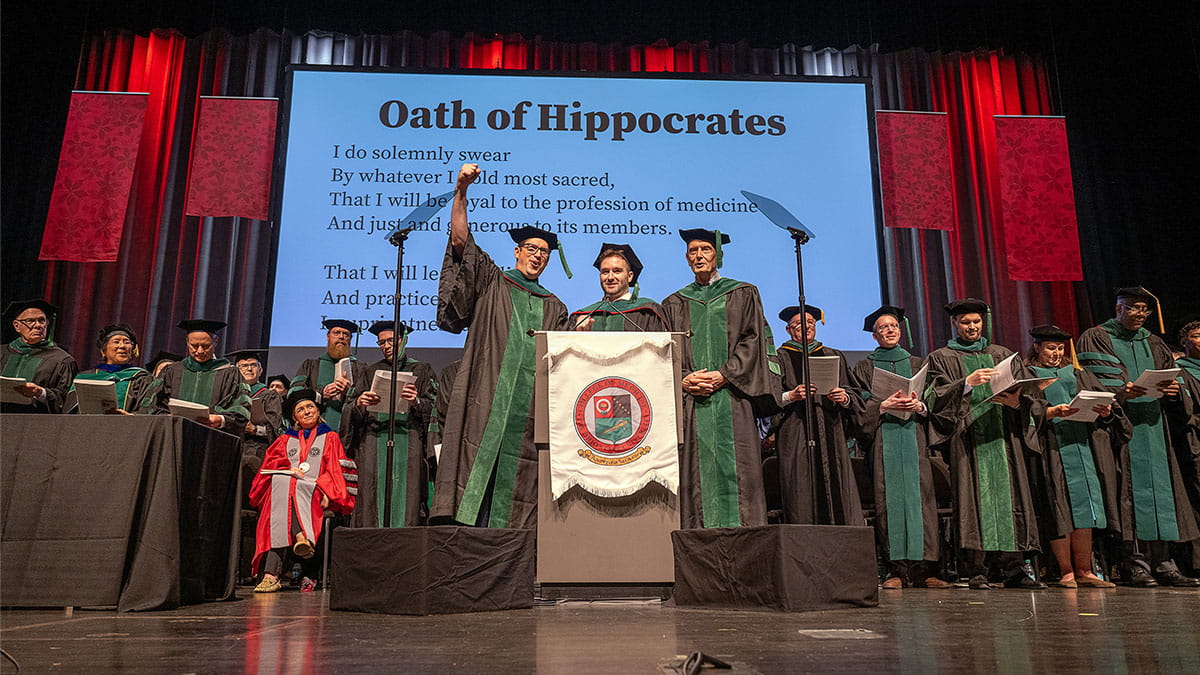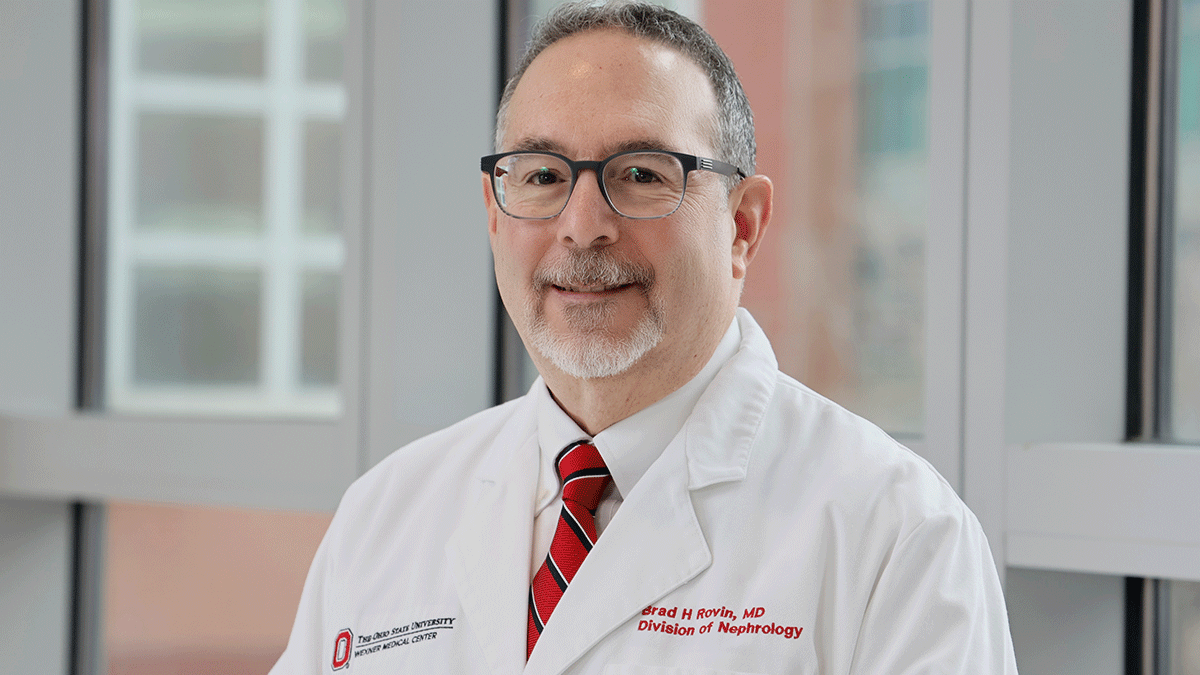Food, community and care: Two studies target nutrition and social factors to protect moms’ hearts and improve pregnancy outcomes

Nutrition insecurity and lack of access to healthy food can have significant impacts on pregnancy outcomes of women living with type 1 and 2 diabetes and can also affect their families. For these women, having access to nutritious food is a key factor in achieving optimal blood sugar control and the best pregnancy outcomes.
Research conducted by Kartik Venkatesh, MD, PhD, associate professor of Obstetrics and Gynecology in The Ohio State University College of Medicine and director of the Diabetes in Pregnancy Program at The Ohio State University Wexner Medical Center, is informing how specialists tailor prenatal care to meet individual patient needs.
Dr. Venkatesh has received two R01 grants that will further his work to improve cardiometabolic outcomes for mothers and infants using evidence-based public health interventions.
Focus on nutrition and glucose control with diabetes in pregnancy
One grant, from the National Institute of Nursing Research, will fund a trial called “NOURISH: A Healthcare-Community Partnership to Improve Nutrition Insecurity for Optimal Glycemic Control and Pregnancy Outcomes with Pregestational Diabetes.”
The trial will provide a scalable model for an integrated, theory-based partnership between health care providers and the community. This is the first study to test whether improving access to nutritious food can improve pregnancy outcomes for women living with diabetes. This is a community-based partnership with the Mid-Ohio Food Collective (MOFC) here in Columbus, one of the largest food banks in the country.
Dr. Venkatesh is leading this trial with co-principal investigators Daniel Walker, PhD, MPH, associate professor and vice chair for research in the Department of Family and Community Medicine, Joshua Joseph, MD, associate professor of Internal Medicine and endowed professor for research in the Division of Endocrinology, Diabetes and Metabolism, Shannon Gillespie, PhD, RN, associate professor in the Ohio State College of Nursing, and Amy Headings, PhD, director of research and nutrition at MOFC.
“It includes weekly nutritious produce home delivery, monthly clinic-integrated diabetes, nutrition and culinary group education, and continuous social needs assessment and support to improve glucose control and pregnancy outcomes,” Dr. Venkatesh says. “It’s an innovative and sustainable partnership that will have significant public health benefits at a time of rising food costs, where access to nutritious food can be challenging for many pregnant women.”
Carol R. Bradford, MD, MS, FACS, dean of the Ohio State College of Medicine, underscores the importance of Dr. Venkatesh’s work in fostering medical advancement and community well-being.
“What is most inspiring is how Dr. Venkatesh connects leading-edge science directly to the needs of the people we serve,” Dr. Bradford says. “His work is driven by a profound curiosity that turns data into action. This evidence is exactly what we need to truly transform care for mothers and babies in our state and beyond.”
Targeting cardiovascular health
Cardiovascular disease is the leading cause of pregnancy-related death in the United States. Dr. Venkatesh’s second grant, from the National Heart, Lung and Blood Institute, funds the study “Maternal Heart Health Starts at Home (MomHeart): Targeting Place-Based Social Determinants to Improve Pregnancy and Postpartum Cardiovascular Health.”
This research will leverage novel interdisciplinary and community-engaged approaches, including advanced geospatial models and machine learning, to examine maternal cardiovascular health outcomes in pregnancy and postpartum. The study outcomes have yet to be widely studied in the peripartum period, and they include the American Heart Association’s recently released Life’s Essential-8 (LE-8) measures and its measures for cardiovascular-kidney-metabolic syndrome.
Dr. Venkatesh says the MomHeart study aims to define the intersection of complex individual and neighborhood-level social determinants of health through a polysocial risk score of nonmedical factors. The goal is to gauge the polysocial risk score’s association with maternal cardiovascular health across the peripartum period. Examining these non-medical factors which affect health has the potential to better identify patients’ challenges and needs, and to develop new remedies.
“MomHeart will provide the evidence to shape future multilevel interventions and policies that directly mitigate adverse social determinants of health, to improve maternal cardiovascular health,” Dr. Venkatesh says.
Dr. Venkatesh’s work, which integrates clinical trials, perinatal epidemiology and precision medicine to impact both maternal and infant cardiometabolic health outcomes, continues to gain noted recognition. He was recently inducted into the American Gynecological & Obstetrical Society, the academic honor society for individuals who achieve national prominence in scholarship and leadership in obstetrics, gynecology and women’s health. He also chaired the first-ever World Health Committee to release guidelines for the management of diabetes in pregnancy, which will be released later this month.



